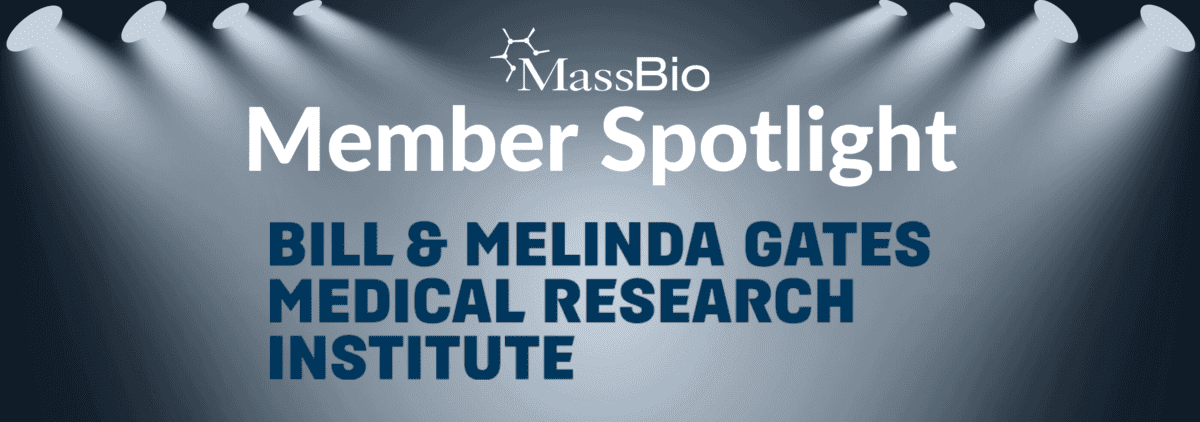
Every month, MassBio spotlights a member company and the great work they’re doing to advance the life sciences industry and support the patients we serve. In August, we spoke with Emilio A. Emini, Ph.D., CEO of The Bill & Melinda Gates Medical Research Institute. Emilio leads Gates MRI’s research and development of novel products and interventions for diseases disproportionately impacting the world’s most vulnerable populations. Before joining the institute, Emilio served as director of the Tuberculosis and HIV program at the Bill & Melinda Gates Foundation, where he led the foundation’s efforts focused on accelerating the reduction in the incidence of HIV and TB in high-burden geographies. He previously enjoyed a 30-year career in the biopharmaceutical industry, leading R&D teams at the Merck Research Laboratories and at Pfizer Inc.
Tell us about your organization, its mission, and current initiatives.

The Bill & Melinda Gates Medical Research Institute is a non-profit organization dedicated to the development and effective use of novel biomedical interventions addressing substantial global health concerns, for which investment incentives are limited. The institute works with collaborating partners and organizations, coordinating and driving the full spectrum of biopharmaceutical development activities, including pre-clinical development, full clinical development (from phase 1 through to and including phase 3), and global regulatory interactions.
Gates MRI focuses on programs aimed at reducing the burden of tuberculosis (TB), malaria, diarrheal diseases, and maternal, newborn, and child illnesses in low-and-middle-income countries (LMICs).
How do your organization’s activities help patients now and into the future?
We are inspired by our belief that “all lives have equal value” and we are driven to serve those in greatest need. We are committed to the development and use of biomedical interventions to address global health concerns. Our work focuses on the needs of globally underserved populations, taking on public health challenges for which the required full development investment by traditional biopharmaceutical organizations is limited and insufficient.
What do you see as the biggest challenge facing the life sciences industry today?
The topic of “access” is a challenge for the life sciences/pharma industry, on many levels. I remain grateful for the efforts of many companies in the pharmaceutical sector who are working to share information and drive transparency, as well as provide essential medicines to global and underserved populations.
At the institute, we adhere to global access and open access policies. Global Access rests on two principles: (a) prompt and broad dissemination of knowledge and information; and (b) access to products at an affordable price to people most in need. These principles underlie all our programs at the institute.
Organizations that partner with the institute agree to the Global Access principles, which require that the knowledge and information gained from our programs will be promptly and broadly disseminated, and that developments will be made available and accessible at an affordable price to people in need.
What’s next for your organization / what are you focused on in the coming year?
The institute is supporting and investing in multiple vaccines and therapeutics programs. These include the development of novel vaccine interventions to prevent tuberculosis (TB) and the establishment of global clinical trial capabilities to support future novel approaches to TB control. The institute is a member of the Project to Accelerate New Treatments for Tuberculosis (PAN-TB) collaboration, in which we will soon conduct clinical studies intended to evaluate promising new drug regimens designed to simplify TB treatment and cure.
Within the next year, we will engage a clinical evaluation of a probiotic supplement to assess its potential to positively impact weight gain in malnourished children. Our earlier stage programs include the development of a monoclonal antibody with the potential of providing seasonal protection in children against Plasmodium falciparum malaria, and the development and study of vaccine candidates for protection against life threatening Shigella dysentery in young at-risk children.
If you’re interested in being featured in MassBio’s Member Spotlight, please see guidelines here.